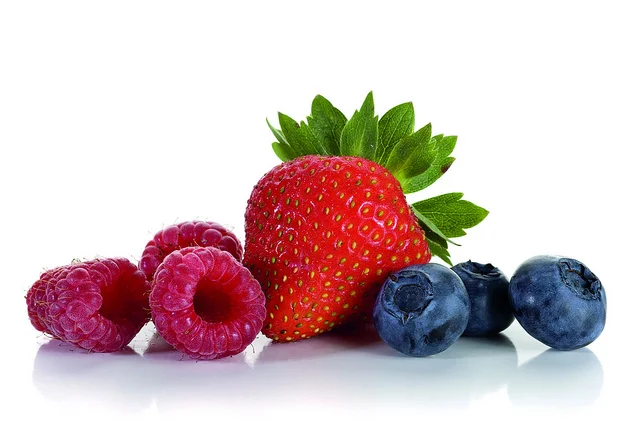With spring and summer come farmers markets and a wide variety of fruits and vegetables. In the next two months, berries of a ton of different varieties come into season including, strawberries, raspberries, blackberries and blueberries. Well, I say berries but really only one of the berries mentioned is actually a berry. Guess which one? I’ll wait. As the narrator of a blog piece about botanical fruit varieties I have infinite time.
Give up?
‘Epiphyte’(“epi” = on top of; “phyte”= plant in Greek), is a fancy-sounding term for a plant that spends most or all of its life living on another plant, usually on a tree . You might think that an epiphyte is a parasitic plant, but it is not! These plants only use the tree as a support system and take no nutrients from the tree itself. They instead rely on rainwater to carry nutrients down tree bark or on collections of soil and detritus in the crotches of branches. Epiphytic plants are represented throughout the plant kingdom, including non-vascular plants (mosses, liverworts, hornworts) and vascular plants (plants that can conduct water).
Incidentally, the Silicon Valley has seen some pretty significant storms (flawless segue). We’ve been flooded with calls about downed trees, bent trees and broken support stakes. Our inboxes doth overflow with cries for help from concerned residents. With this in mind here’s what you need to know to manage tree risk.




